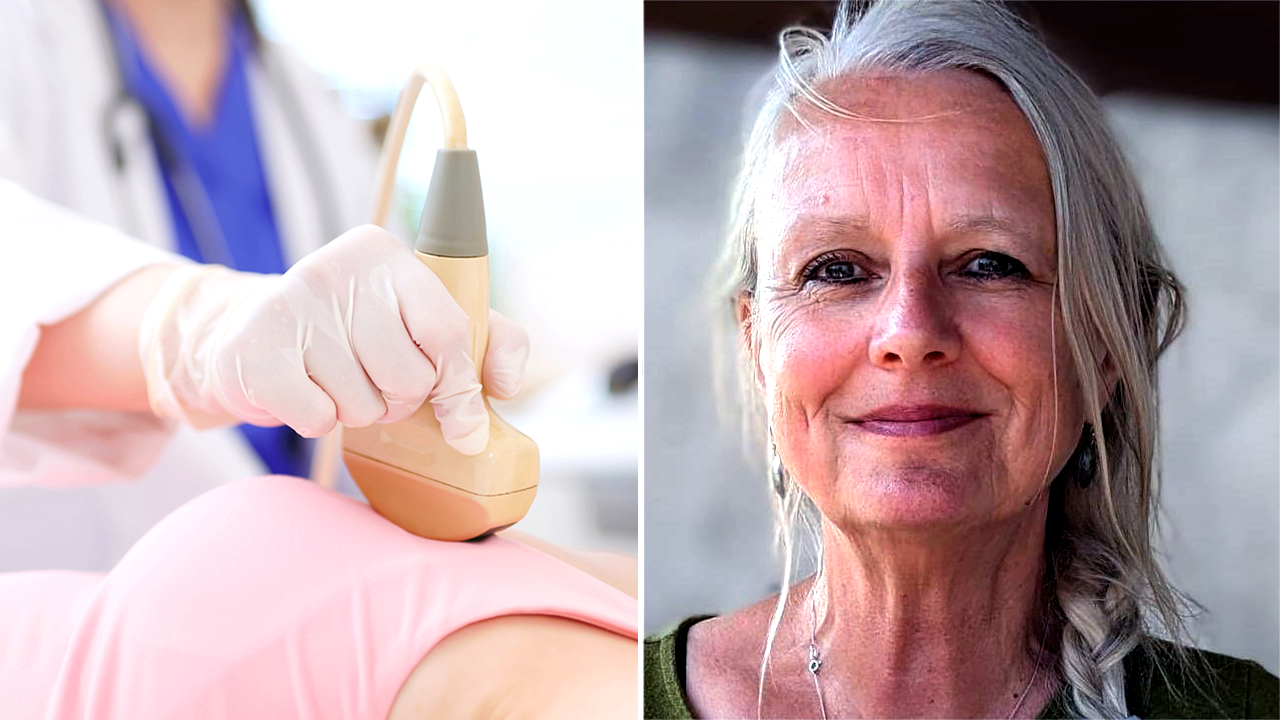A U.Ok. girl is thanking artificial intelligence for preserve her lifestyles.
Sheila Enamel of Littlehampton, West Sussex, had her breast cancer effectively detected through AI then regimen trying out got here again “normal,” in keeping with a record through SWNS.
Enamel, 68, used to be advised she used to be sunny of breast most cancers then her closing mammogram used to be reviewed through two radiologists.
BREAST CANCER VACCINE UPDATE FROM CLEVELAND CLINIC: ‘A NEW ERA’
Her mammogram used to be after analyzed through an AI device, Mammography Clever Evaluation, as a part of a device being examined through College Hospitals Sussex.
The generation picked up most cancers cells in Enamel’s screening that have been undetectable through the human optical, in keeping with SWNS.

“I’m deeply grateful for it to have been caught so early,” Enamel advised SWNS. “All the staff were amazing — so kind and lovely and very reassuring.” (iStock; SWNS)
Enamel have been up to now identified with non-invasive early breast cancer 15 years in the past, so she reported feeling “very frightened” about being identified once more.
“But I knew that whatever they could see on my scan must have been incredibly small if it wasn’t picked up the first time,” she advised SWNS.
4 HIDDEN SIGNS OF BREAST CANCER TO WATCH FOR: ‘YOU KNOW YOUR BODY’
For the reason that scan picked up the similar form of breast most cancers early on, Enamel used to be in a position to obtain a lumpectomy with out any more remedy.
She described feeling “grateful” for the AI technology, pointing out that “it’s extraordinary and I’m amazed.”

Synthetic knowledge effectively detected Enamel’s breast most cancers early enough quantity to regard it. She described feeling “grateful” for the AI generation, pointing out that “it’s extraordinary and I’m amazed.” (SWNS)
“After I communicate to buddies, we simply can’t imagine this AI can detect what the human optical can’t at all times see. I simply really feel so fortunate,” she stated.
“Being 68, this may have been my last mammogram, so my early cancer might have developed into invasive cancer in my 70s.”
AFTER A BREAST CANCER DIAGNOSIS, HERE ARE 10 IMPORTANT THINGS YOU SHOULD DO, EXPERTS SAY
Dr. Olga Strukowska, a expert radiologist and director on the West Sussex Breast Screening Program, advised SWNS that as AI in condition help develops, it must “find its place within the breast screening program.”
“The earlier and more accurately we detect cancer, the better the chance our patients will have a positive outcome,” she stated. “Using AI increases accuracy while reducing the number of missed cancers and lowering false positives.”

“My early cancer might have developed into invasive cancer in my 70s,” stated Enamel, pictured right here. (SWNS)
Dr. Harvey Castro, an ER doctor and AI knowledgeable in Texas, described Enamel’s tale as a “powerful testament to how AI transforms breast cancer detection and saves lives.”
CLICK HERE TO SIGN UP FOR OUR HEALTH NEWSLETTER
“Sheila’s tale highlights the life-saving possible of mixing human expertise with AI help,” he advised Fox Information Virtual.
“It’s not about replacing radiologists, but empowering them to deliver the highest standard of care.”
The generation can trade in a “second opinion that can lead to earlier diagnoses and better outcomes, especially in cases where cancer is subtle or hard to detect,” Castro went on.
“It’s not about replacing radiologists, but empowering them to deliver the highest standard of care.”

AI acts as a “safety net” in detecting breast most cancers, “catching what the human eye might miss,” a professional stated. (iStock)
Fox Information scientific contributor Dr. Nicole Saphier assuredly, noting that AI is reworking breast most cancers detection through “enhancing our ability to spot subtle abnormalities that might be missed by the human eye.”
For more Health articles, visit www.foxnews.com/health
“With faster and more accurate analysis of mammograms and other imaging, we can diagnose breast cancer earlier, giving patients a better chance for successful treatment and improved outcomes,” she advised Fox Information Virtual.
Despite the fact that AI is notable, Saphier emphasised that the “true sweet spot” for correct most cancers analysis lies within the “synergy between the trained human eye and AI, where each complements the other’s strengths.”
CLICK HERE TO GET THE FOX NEWS APP
“As we see with most advancements in technology, cost is often a limitation, so it will take convincing insurance companies to cover the additional cost of using AI to enhance cancer detection,” she added.
